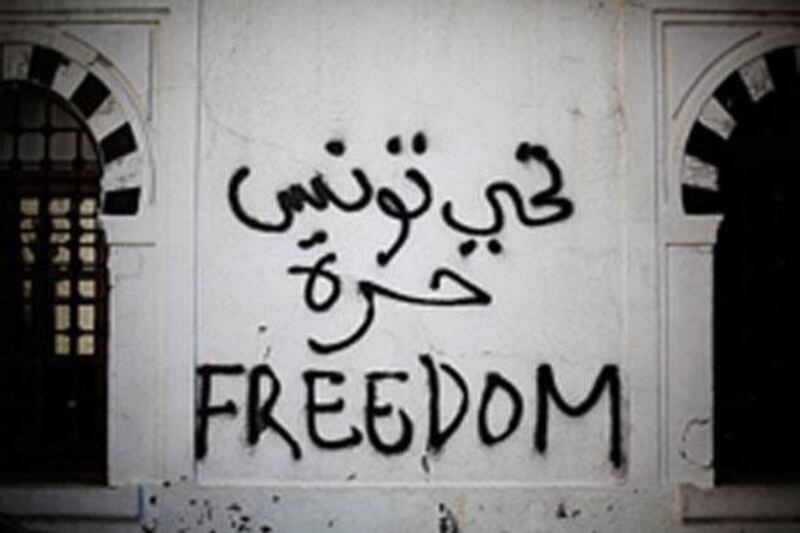TUNIS // Tunisia began this year by toppling the dictator Zine El Abidine Ben Ali and ended it with the country's first free elections, leading a wave of democratic change across the Arab world. Now the question is: Will it work?
Looking back: Tunisia's 2011
When Tunisians remember 2011, certain cries will rush to mind: “Leave!” “Revolution!” “Freedom!” – yells of defiance and victory. But right behind them will come darker words, such as “confusion”, “anxiety” and “fear”.
Aftermath: Toppling of Zine El Abidine Ben Ali battered Tunisian economy. Read article
Tunisia's timeline of events Read article
[ MORE ON TUNISIA ]
While Tunisia today is a freer and happier place than under Ben Ali, the interim coalition government faces stiff challenges in transforming a broad-based popular uprising into a functioning government, as well as a democratic one.
State institutions calibrated for authoritarian rule must be overhauled and a new constitution written before Tunisians can elect a parliament. Meanwhile, urgent reform is needed to boost a faltering economy.
Much depends on leaders' ability to work together. It also depends on the ideas and involvement of ordinary Tunisians.
So far, signs are good. Ben Ali's fall unleashed vibrant debate over Tunisia's future, as dozens of parties blossomed into existence. In October, voters turned out in unprecedented numbers and enthusiasm to elect a national assembly to write a new constitution.
The new government is an unlikely partnership among the moderate Islamists of Ennahda, which handily topped elections, and the secularist Congress for the Republic (CPR) and Democratic Forum for Labour and Liberties, known as Ettakatol.
One western diplomat said that "2012 promises to be an extremely eventful year".
"This is the year for Tunisia to come together, we hope," the envoy said.
While a new constitution and timetable for elections could emerge within the next year, Tunisia's government will be hard pressed by an impatient public to demonstrate progress on solving economic woes, the diplomat said.
Such work takes time. To operate effectively, leaders first must settle on a comfortable balance of roles between the prime minister, Hamadi Jebali, from Ennahda, and the president, Moncef Marzouki, from the CPR.
While Mr Jebali has the most power on paper, "it seems that Marzouki is going to harness the symbolic power of his office", the diplomat said. "There are some internal tensions within the troika, and that, perhaps, will be one of them."
Mr Marzouki enjoys wide respect in Tunisia for his record as a human-rights activist exiled for a decade under pressure from Ben Ali's regime. The CPR also won votes by pledging to bridge the country's Islamist-secularist divide.
That divide dominated the electoral campaign, with some secularists accusing Ennahda of concealing a radical agenda despite the party's embrace of democracy and vow to uphold legal advances on women's rights.
"I think this will be a big source of tension in society," the diplomat said. While most Tunisians cite economic woes as their chief concern, "this issue really touches a nerve".
To hash out these issues, input from younger Tunisians is vital, said Mohamed Juweli, a sociologist and secretary general of the National Youth Observatory, a state agency on youth affairs.
"It's hard to talk of change just one year after the revolution," Mr Juweli said. "But what's important are freedom of expression and the dynamic the revolution has created that allows young people to take part in the country's evolution."
Dozens of youth organisations sprouted after Ben Ali's departure, Mr Juweli said. This month, representatives from some 50 of the groups took part in a conference in Tunis on youth in politics, which was organised by the Observatory.
One after another, young Tunisians mounted the podium to voice questions and concerns to an audience that included older civil-society activists and a World Bank official.





